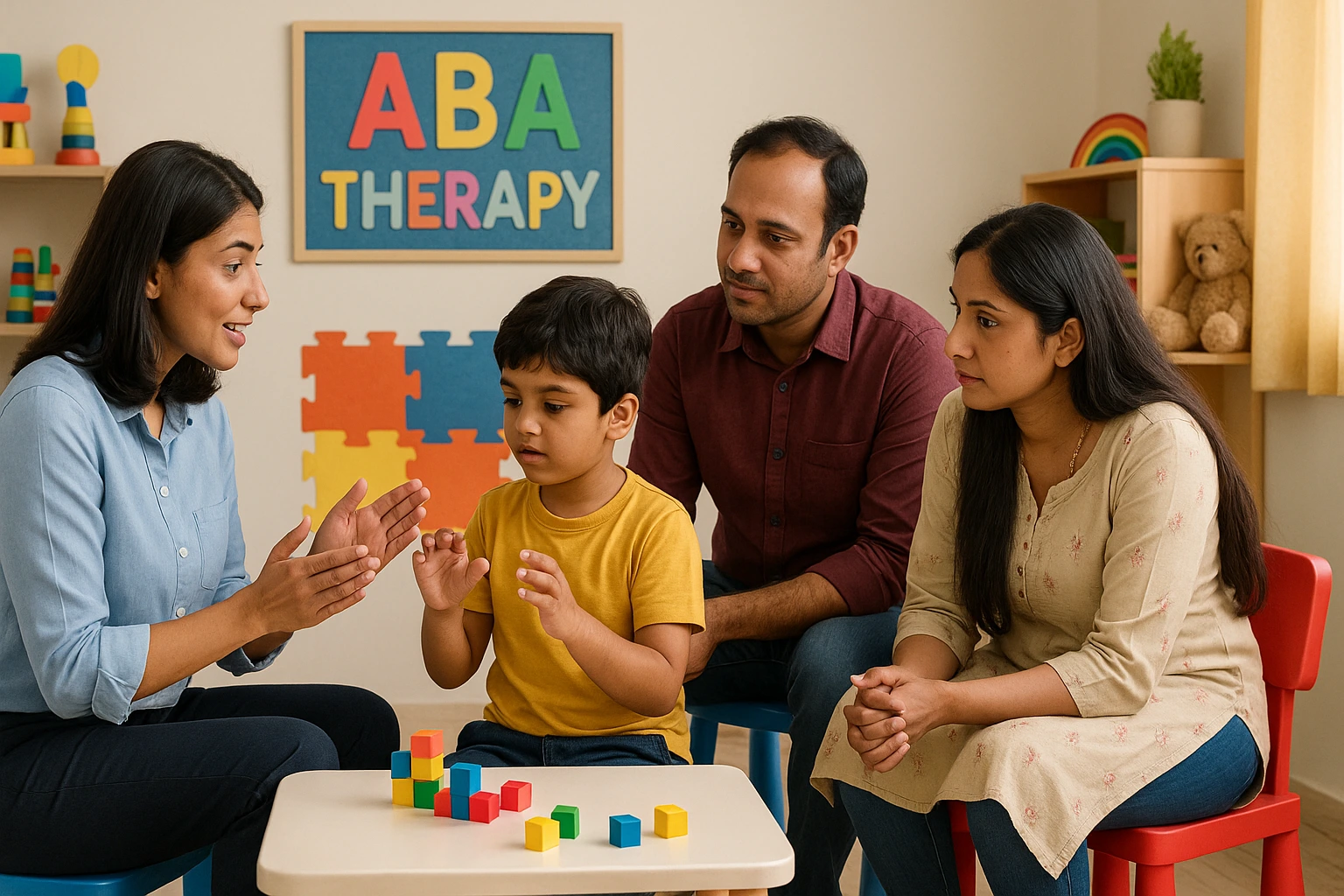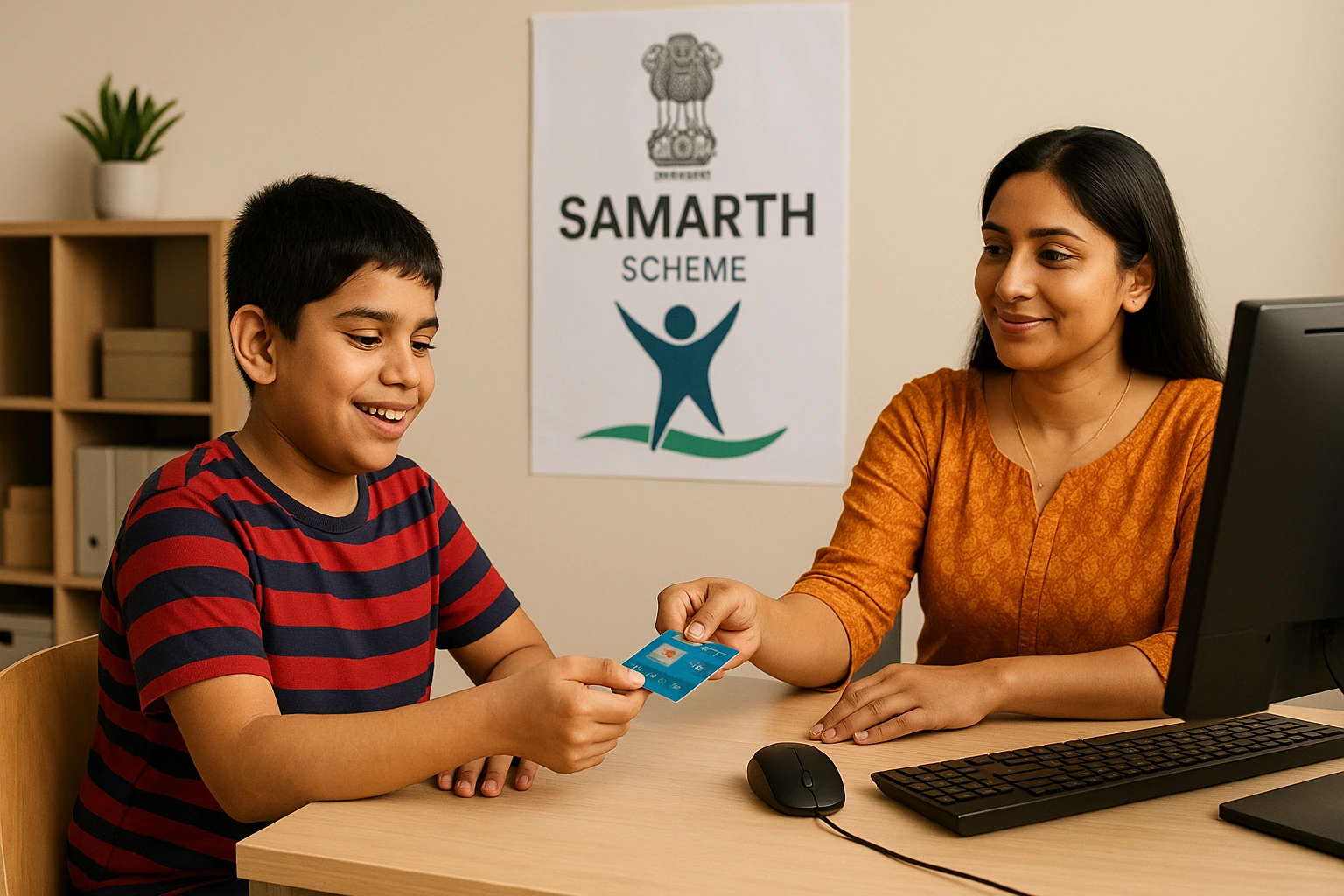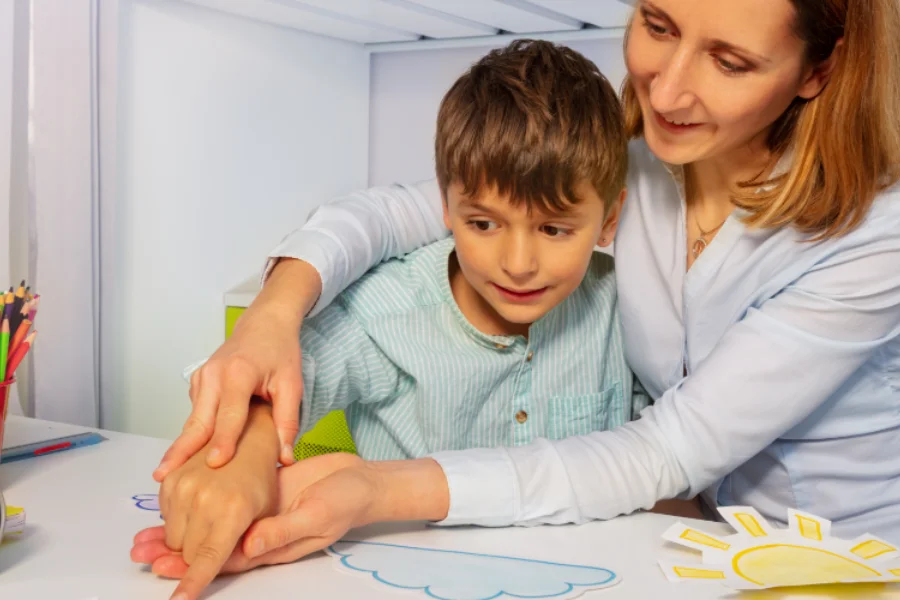
Autism or ASD is a developmental disorder due to improper brain development that leads to unruly behaviors and affects the learning skills of a child. As autism awareness increases globally, April 2nd is designated as Autism Awareness Day, a day when the community comes together to show solidarity with autistic individuals.
This day is celebrated with great fervor, and across the country, initiatives are taken to create more awareness for Autism, and activities are conducted to celebrate the diversity of children and their varied learning styles.
What Type of Supports are Available to Children with Autism and Their Parents?
Considering the complex changing nature of the educational landscape, a lot of support programs have been introduced to uplift the overall well-being of children with autism. Be it academic support from the school in the form of remedial interventions, personality development sessions, to conducting sessions for parents, educating them about the policies, benefits and concessions, a lot of support programs have been launched for the betterment of children and families of children with autism.
To download the brochure about Special Ed Course, Click Here!
For more details on a Special Ed Course, Call / WhatsApp at +919321024137 / +919869866277
Here are some common types of support available:
Early Intervention Programs
As the name suggests, early intervention programs are started during the early age period, starting with 3 years, where the developmental pace of the various arenas of the child is at its peak.
Special Education Services
In schools, children with autism may get individualized education plans (IEPs) custom-made according to their learning styles and needs. Support can include classroom aides, therapy sessions, and accommodations.
Speech and Language Therapy
This helps children with communication difficulties, whether they are nonverbal, have limited speech, or need help with social interaction skills.
Occupational Therapy
Concentrate on building daily living skills, motor coordination, and sensory integration to support individuality and comfort in daily routines.
Applied Behavior Analysis (ABA)
A usually used that boosts positive behaviors and reduces behaviors that may interfere with learning or relationships.
Social Skills Groups
These programs help children learn how to interact with others in structured, supportive settings.
Parent Training and Support Groups
Parents can attend workshops, support networks, and counselling to better understand autism and study effective plans for supporting their child.
Respite Care Services
These offer temporary relief for families by providing experienced caregivers who can look after the child.
Societal Well-Being Programs
Activities are conducted that help to give every child a chance to display their talents, skills, enabling them to develop self-reliance and self-esteem.

What is the Government Scheme for Autism Children?
The Government of India endeavors to maintain a healthy supporting environment for all children, especially for children who face struggles. In India, the government has introduced some schemes to support children with autism and their families. These initiatives aim to provide healthcare, education, and social integration opportunities.
Key programs include:
Niramaya Health Insurance Scheme
As the name suggests, this scheme caters to the health insurance of people with disabilities, mainly with ASD, cerebral palsy, mental disabilities, and physical impairments. Under this scheme, individuals are given a coverage of up to 1,00,000 that covers their medical expenses, any operations or transport costs.
This scheme is initiated and monitored by the Department of Empowerment of Persons with disabilities, a dedicated organization for the upliftment of people with varied disabilities.
Samarth Scheme
This scheme aims to provide residential facilities for individuals who are facing challenges due to disabilities. This program ensures that individuals receive proper conducive living facilities, which are safe and adhere to all the specific requirements needed for a healthy lifestyle and overall well-being.
Gharaunda Scheme
Aim for adults with disabilities, including autism, this scheme offers cheap housing and lifelong care services. Under this scheme, emphasis is laid on helping groups gain specialised skills that help them in achieving financial freedom, leading to a better standard of living and promoting the overall well-being of the community.
Sarva Shiksha Abhiyan (SSA)
The Right to Education Act specifically mentions the right to free basic education from the age of 6 to 14 to all children, especially for children with Autism. The program accepts a zero-rejection policy, ensuring informed access with correct support. As of recent data, thousands of autistic children have been enrolled in schools, with additional provisions for special training and home-based education where necessary.
These programs reflect the government’s promise to make an inclusive society where persons with autism get the necessary support to lead fulfilling lives.

Source: socialsecurity
Tips for Dealing with an Autistic Child Disrupting Class
An important aspect of any autistic child is their behavioral functioning, which is unruly because of the faulty information processing and zero control over their emotional regulation. Due to this, the autistic child can unknowingly cause a lot of disruption in a regular classroom setup. To ensure that the autistic child can handle their emotional challenges and display orderly behaviors, the educator must lay solid groundwork by being patient, assessing the child’s strengths, weaknesses, and applying the correct therapy to create a conducive learning environment for all students.
Some valuable suggestions for helping the child are as follows:
Stay calm and Positive.
Respond to disruptions with a calm tone. Children with autism often respond better to gentle correction than stern discipline.
Understand Triggers
Identify what might be causing the disruption—loud sounds, sudden changes, or frustration with a task. Knowing the trigger can help prevent future issues.
Use Visual Aids
Many autistic children benefit from visual plans or cue cards. These tools help them understand expectations and stay focused.
Set Clear, Consistent Routines
Being well-aware of their daily routines is a must for children with autism as they like a consistent schedule, which helps them in being calm and reduces the chances of any disruptive behavior.
Offer Breaks
Give the child little breaks in the ongoing class to help them feel at peace and relaxed to handle their emotions well.
Provide Positive Reinforcement
Acknowledge small improvements or calm behaviour. Encouragement can go a long way in building a kid’s response to classroom surroundings.
Use Individualized Support Plans
Work together with special educators or therapists to make a support plan custom-made to the child’s needs.
Take Professional Training
Gaining specialized knowledge can boost confidence in handling classroom challenges. The Diploma in SEN Course offered by Vidhyanidhi Education Society (Govt. Regd.) is a valuable option for teachers, caregivers, and professionals. This course equips individuals with the skills needed to understand and manage an Autistic Child effectively.
Involve Parents
Work closely with the child’s family to understand behavior patterns and strategies that work at home.
Create a Buddy System
Pairing the child with a classmate for support during activities can encourage social interaction and cooperation.
Pursuing a Diploma in SEN Course can make a big difference in how educators respond to an Autistic Child. The Diploma in SEN Course by Vidhyanidhi Education Society (Govt. Regd.) highlights practical methods and classroom management approaches that support both the child and the teacher. With proper training and support, every classroom can become a more inclusive and peaceful learning space.
Empower young minds! Join Vidhyanidhi Education Society’s Special Ed Course & make a difference!
To download the brochure about Special Ed Course, Click Here!
For more details on a Special Ed Course, Call / WhatsApp at +919321024137 / +919869866277
Autism Awareness Day
FAQs
How to Raise Awareness for Autism?
For raising Autism Awareness, conduct awareness camps where people from various platforms meet and discuss their experiences of ways to handle the challenges of autism.
What Colour is Autism Awareness Day?
Blue is the colour associated with Autism Awareness Day, representing calmness and acceptance. On April 2nd, people wear blue to show support and increase understanding of autism.
Why are Puzzles used for Autism?
The puzzle part represents the difficulty and variety of the autism spectrum, on behalf of the individuality of each individual with autism.



